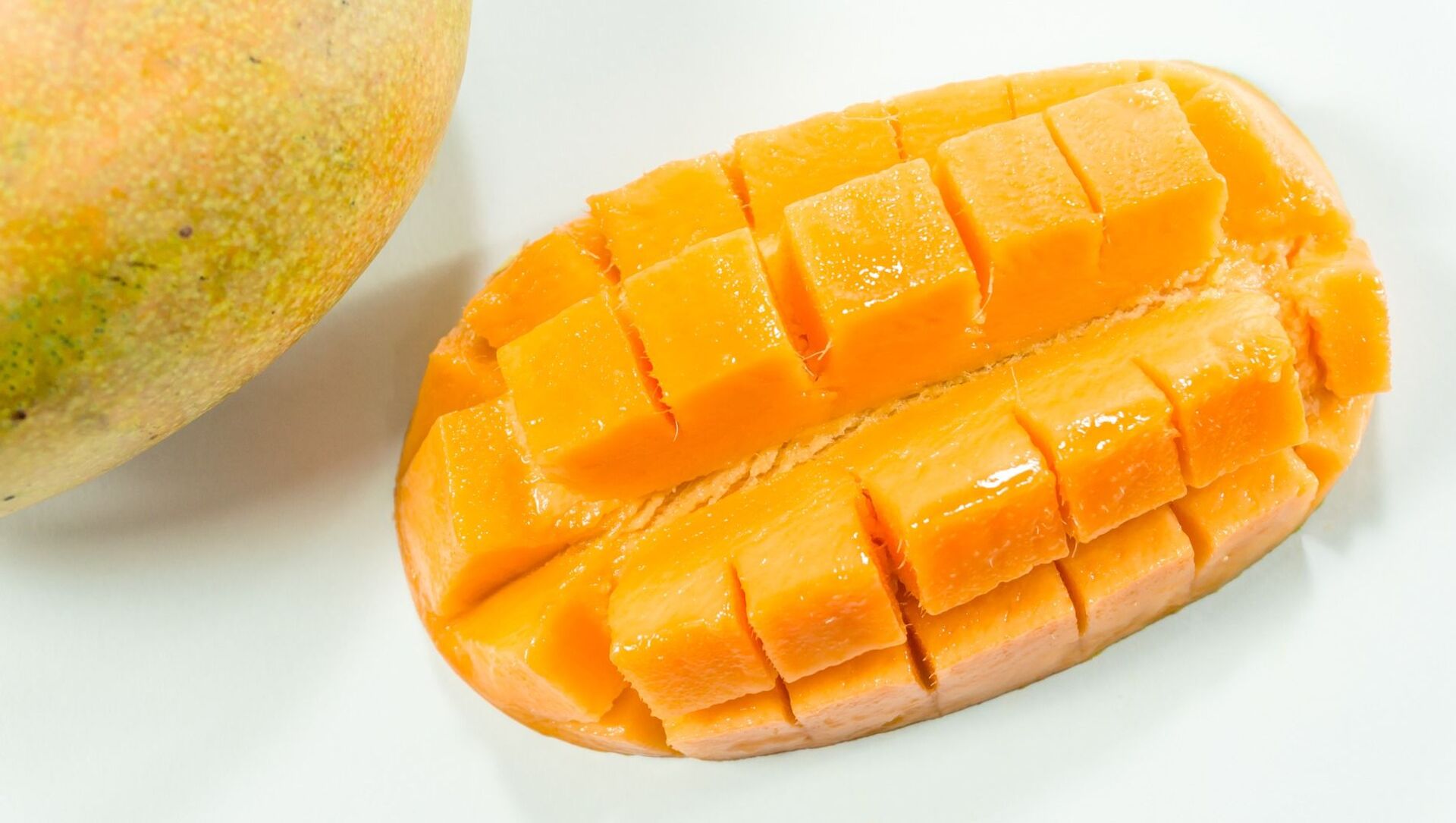With summer beginning in India, the season of mangoes also starts. The mangoes of Malihabad and Kakori, villages near Lucknow, the capital city of Uttar Pradesh state in the country's north, are famous for producing a variety of mangoes, especially the ‘Dasheri’.
However, farmers were worried about sales of the fruit because of the lockdown. Responding to the concerns of the farmers, the Central Institute for Subtropical Horticulture (CISH), a special laboratory of the Indian Council of Agricultural Research (ICAR), has developed a mobile app for the exclusive marketing of the Lucknow mangoes.
CISH director, Shailendra Rajan, told Sputnik: “The initiative was taken by the institute's Agri-Business Incubation Centre. The entrepreneurs received good responses and learnt about the supply chain of mangoes from the farmers to the customers using the app. This included selecting fruits, grading, processing, packaging and delivery, which requires experience, especially in handling a large number of customers during the season.”
Sharing the difficulties faced during the initial phase, he said they partnered with the Indian postal department and tried to ensure the supply but it was possible for about two months only, as the area near the airport was declared a containment zone.
"We started receiving orders now and during the second wave of COVID-19 as the Malihabadi mangoes are popular across the northern Indian states.
“It is easier for the people of Lucknow to get the ‘Dasheri’ mangoes but for the people in other parts of the country, it will be difficult as the movement of trains, flights etc. is delayed. Therefore, we have engaged the budding entrepreneurs through the incubation centre, trained them about various aspects of mango trading and now they will be ensuring the supply across the country,” he added.
“We have engaged a lot of farmers to ensure a continuous supply chain. The online supply can easily ensure doorstep carbide-free mango supply. For sustainable online marketing of mangoes, entrepreneurs have to maintain quality as the mango changes with the season,” he noted.
When asked what these entrepreneurs will do when the mango season is over, the CISH director said: “Since the business was limited to fresh mangoes only, once the mango season is over, the network and facilities created will remain idle. Therefore, the entrepreneurs chose to include a few other items for digital marketing. Many of these may be mango-based, but there is good scope to include other fruits and mango-based value-added products.”
The mango output in Uttar Pradesh is estimated at four million tonnes a year, but it fluctuates from one year to another, depending on climate during the flowering season. India is among the top mango producers in the world, comprising 40 percent of global output, followed by China, Thailand and Pakistan. However, a major portion of the fruit is consumed at home and only a small quantity is exported.


